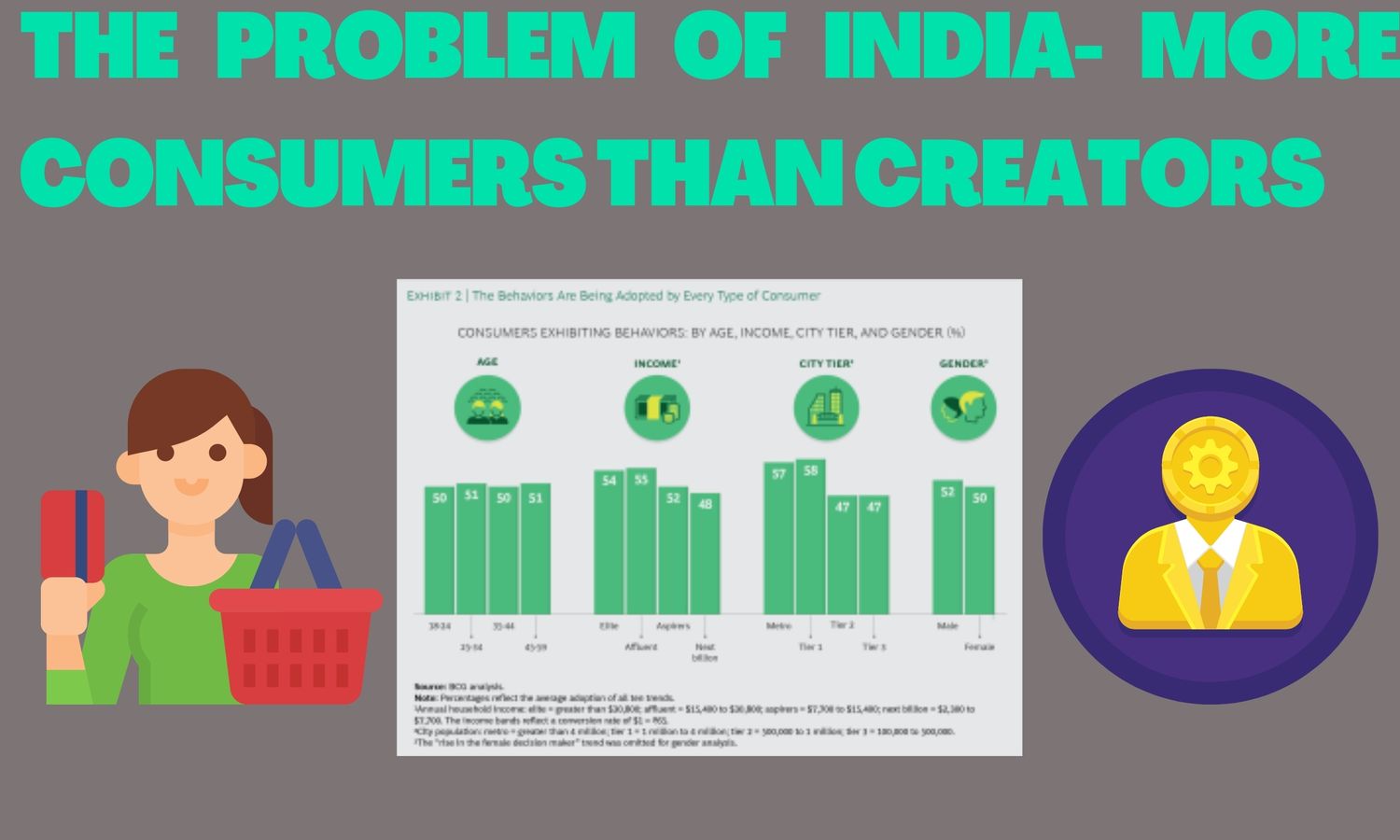The Problem of India- More consumers than creators
The Problem of India- More consumers than creators
By Vivek Gupta

We always hear in media that India, with a GDP of 2.72 lakh crores USD (2018) is now world’s sixth largest economy, and that we are going to be a 5 trillion dollars economy by 2025 etc. But the reality is, that we are also a 137 Crore population country, thus in terms of per capital income adjusted for PPP (the best measure that I think), India’s rank is 106 in the world. Coupled with one of the highest unequal distribution of wealth, this leads to one of the largest number of people living in abject poverty.
But unlike media or political parties, we should be blaming Indian citizens only for their state. The main reason is that we have far more resource consumers than resource creators. Resource creators are the tax payers who use their skills, education and knowledge to generate new wealth in the economy, significantly adding to the GDP of the country. Resource consumers belong to that category that are freed from the payment of taxes, and do not contribute but in reality, drain the resources of the country. We can classify Resource creators as human resource while resource consumers as human liability.
What a developing country needs, is the percentage of resource creators to be more. But in India, the scene is completely the opposite. Be it any sphere, considering the population of the country, the percentage of wealth creators are very low. We are not only considering income tax payers, even people who are consuming market goods and services and thus contributing indirect tax such as GST are also considered resource creators for this discussion. So resource consumers are people who hardly buy fuel or branded stuff in their entire lives other than may be basic kitchen items.
Just to highlight few point:
- Almost 18% of the world’s population lives in India, and the total dependency ration of population in India is 54.1%. This is more than half of the working portion. One of the major reasons is the unskilled population of India being dependant in nature. They are not skilled and educated enough to add to the growing GDP and on top of that, they have been extracting free services out of the government’s pocket, draining the limited resources of India.
- This stratum of population drains the educational, medical and legal resources of India. The entire budget of education, healthcare and judiciary is mostly extracted by this resource consumer population.
- Do we know the fact that Indian Railways covers only 57% of cost in tickets?? Why should they not take full 100% cost+ some nominal profit? Because the resource consumer population cannot afford it and there’s no reason why they need to travel. They travel because they still want to roam around, meet their relatives again putting strain of limited resources. The Government can’t take full fare due to political constrains and elections.
- Various central and state governments keep on bringing various schemes to appease this population. So be it toilet construction or tube well, MNREGA or loan waivers for farmers, food security or employment guarantee, this population keep draining resources.
As per a rough estimate, a person in this segment of population may consume about Rs 30-50 lakhs of national resources in his life time without giving back anything to country.
Proposed Solutions:
- Government and political projects have to be viable (ROI has to be higher). The projects incurred by the political parties and the government such as electricity connections to far off villages should be a viable one, and should be optimally used. There is no good to electrify all remote villages of India if they are really far off. The cost to do is humangous. It would be better if people of that village are encouraged to resettle in already developed areas. Similarly taking train lines to remote areas , metro lines in Tier 2 cities like Jaipur/ lucknow are all non viable projects done only for politics. Similarly , rather than creating new settlements for far off villages for election, new remote polling booths should be created as well as the presence of E-votes.
- Railways have got Rs. 65,837 crore budgetary allocation and an outlay of Rs. 1.60 lakh crore. Hence the rate of returns in railways should be beneficial to the government. Projects such as the railways should be executed on those areas where there is an urgent need of transportation and where rail is the only option; rather than developing it in places where there is no optimal utilisation of this man-made wonder. Railways should also fully recover their operating costs from ticket price. Same rule for metro services and local trains
- Free healthcare and education should be stopped. They should cover at least 50% of the cost if not full. Like when we claim motor insurance, we need to pay first 20% of claim value. Even this deters unnecessary claims. Giving absolute free education and healthcare encourages people top misuse them. The corona situation has proved that most of government healthcare budget is wasted by unnecessary treatment taken by poor
- All government welfare schemes should be re looked.
This may sound hard but this is only way to stop having more resource consumer population. In short, issue in India is resource creators are having small families whereas resource consumers have large families. They have large families as they are aware of the availability of free healthcare, free education, highly subsidized food and other government schemes. They should know that these free things are no more available so they would think thrice before conceiving next child.